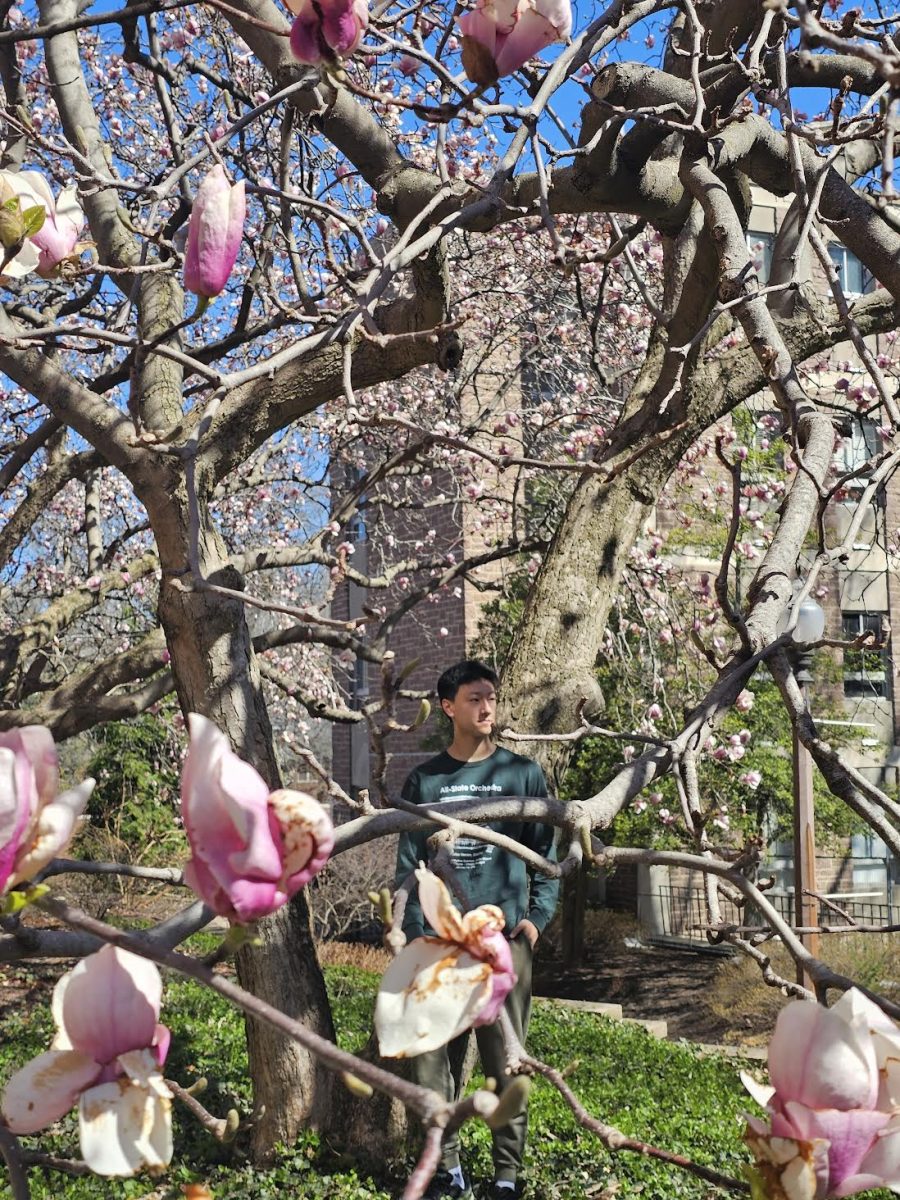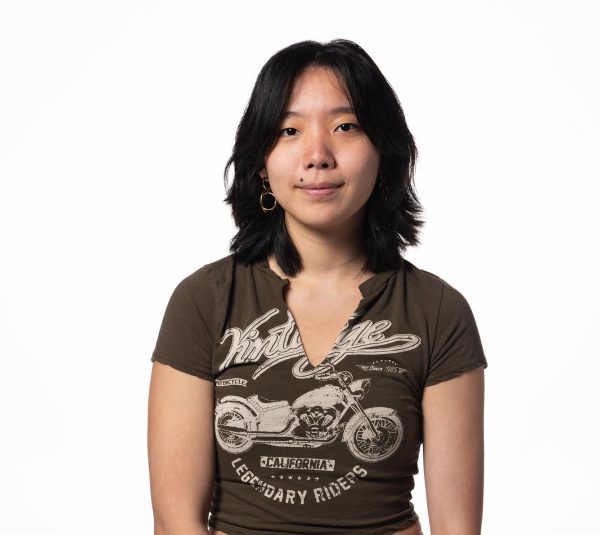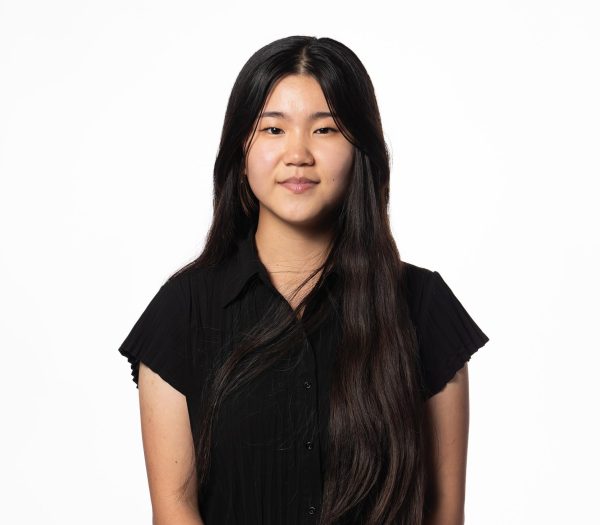One of the greatest strengths of democracy is giving people a voice, whether through voting, polling, rallies or protests. However, in the masses, the voice of a single person can be drowned out by the force of the people. To discuss politics and the election, Panorama created a focus group of students and staff, and one of the questions we asked was, “Do you think your voice is heard in politics?”
Students reported a sense of voicelessness as minors, despite being drastically affected by politics. Staff described feeling neglected in Missouri, a deeply partisan state, as media hones in on swing states. In a polarized world, the focus group spoke about their fears stemming from national division, keeping an open mind and engaging with people across the political spectrum. From disagreements at the dinner table to anxieties during debates and fears about the future, all described a want to bridge these divisive gaps.
Some were frustrated with systems like the electoral college, the opacity of the political process and what they perceived as the self-serving tendencies of politicians, culminating in a general hesitance towards wholly trusting the government. Most described their attitudes towards the future as cautiously optimistic, detailing the need to, at the very least, make an effort to make change. Read the full interviews below.
Participants (Name, age):
Mina F., 17
Henry M., 14
Danielle C., 18
Shana B., 37
Jennifer H., 47
Charles R., 18
Emma L., 30
Chloe L., 16
Ayden H., 15
Alex Z., 15
Gabriella B., 15
Jacari H., 18
Describe the current political atmosphere in one word.
Mina F. — Conflicted.
Henry M. — Misinformation.
Danielle C. — Toxic
Shana B. — Intense
Jennifer H. — Important.
Charles R. — Polarized.
Emma L. — Exciting.
Chloe L. — Yikes.
Ayden H. — Two-sided.
Alex Z. — Chaotic
Gabriella B. — Disorganized.
Jacari H. — I agree with Danielle, definitely toxic.
Describe the election in one word.
Mina F. — Tense.
Henry M. — An obvious choice.
Danielle C. — Funny.
Shana B. — Nail-biter.
Jennifer H. — Important.
Charles R. — Polarized.
Emma L. — Exciting.
Chloe L. — Concerning.
Ayden H. — Messy..
Alex Z. — Still chaotic.
Gabriella B. — Disorganized.
Jacari H. — Jokey.
How hard is it for you to talk about politics with others?
Mina F. — It’s very hard. I feel like I have a very open mindset, and whenever people don’t, then we have disagreeing viewpoints. That kind of makes me shut down on the topic. I’m not going to be quick to argue with somebody, because I’m just not that type of person. But I feel like if someone has very strong opinions on politics, they’re going to want to argue.
Henry M. — I wouldn’t say it’s that difficult. I’d say I’m very open to talking to people a lot.
Danielle C. — I think when talking about politics, as far as my opinion, it’s pretty easy.
Shana B. — I guess it depends on who I’m talking about it with. I’m very mindful of my role here with students, so talking about it at work looks very different than talking about it with friends or family. Outside of work, I’m completely comfortable to be able to engage in conversations or dialogue. It’s just kind of being really thoughtful of the position I’m in here.
Jennifer H. — I don’t mind talking about politics. I enjoy talking about politics with people. I like to talk about it in the abstract, and I will talk about it in specifics. I think when it gets difficult is when you’re talking with somebody, maybe with whom you share a closeness, where you find yourselves holding very opposing views. Working through that can sometimes be a really big challenge.
Charles R. — It can be difficult. I feel like I have evolving views, and I’m always open to hear other people’s perspectives, but I don’t always feel like the same way back.
Emma L. — I don’t have any difficulties. I mean, obviously with my profession, I don’t talk about it with my students, but in my personal life, I don’t really have many issues.
Chloe L. — It’s pretty hard because I have strong opinions, but I don’t want political views to divide me and my friends.
Ayden H. — I don’t know. I don’t really talk about politics with others.
Alex Z. — It’s a little strange.
Jacari H. — It’s pretty easy, but it can get difficult depending on the person.
What’s one issue that’s important to you that’s on the ballot in November?
Mina F. — Prop three, the abortion one. I’m one of the leaders of FEMCO, which is the feminist coalition here. That’s super important to me and my beliefs, and that’s an important part of my future and lots of other womens’ future.
Henry M. — Abortion, climate change and continued funding to Ukraine.
Danielle C. — The environment and climate change.
Shana B. — Women’s health.
Jennifer H. — I am always concerned about, you know, our world and the world we’re leaving to [young people]. I like to think about the expansion of rights and making sure that everybody has the rights that they are given by our founding documents.
Charles R. — Abortion in Missouri. It’s important to me that we have the vote to be able to do that.
Emma L. — I care about policies that are taking into consideration the future of our environment and our ecosystems.
Chloe L. — Abortion and gun laws.
Ayden H. — Abortion.
Alex Z. — Inflation.
Jacari H. — The climate.
What’s one issue that’s important to you that’s not on the ballot in November?
Mina F. — I’m not sure.
Henry M. — Gaza.
Danielle C. — I actually believe they can talk more about the sustainable stuff. Kamala Harris talked about what she was going to do about fracking and stuff. But she didn’t really say anything else.
Shana B. — Student loans.
Jennifer H. — I haven’t really thought about that.
Charles R. — The swing-state system and how politicians can help those not in swing states.
Emma L. — Looking at the debates and the interviews with media, I think everything that I care about is being addressed in some way.
Chloe L. — Taxes on rich people.
Ayden H. — I’m not sure.
Alex Z. — I’m also not sure.
Jacari H. — Suicide rates in young adults.
What do you think are the biggest challenges facing us as a country?
Mina F. — Not respecting basic human dignity and not valuing each other as people. I feel like everyone needs to respect others’ basic human rights, and whenever we get into big arguments over politics, you’re kind of disrespecting those human rights.
Henry M. — We’re all pretty polarized. It feels like there’s no national unity, I guess. But I also think that that’s hard, because getting national unity on some of these topics isn’t an option.
Danielle C. — We’re in debt. Like, crazy, trillions of dollars debt.
Shana B. — The economy, healthcare and housing, the risk of war and climate.
Jennifer H. — The flow of information. If you looked back to when your grandparents and even your parents when they were young, most people watched the 6 PM news. They read the same newspapers. There was a shared set of facts that we all agreed on. Now that people are choosing to silo themselves in certain information spheres, that is the greatest challenge we have in our society: getting back to a shared sense of of what is true and what is not.
Charles R. — Making sure that we keep the middle class boosted. That’s a really important group, and making sure that we have the economy and the jobs and the growth to ensure that we have a strong middle class and that the wealth gap doesn’t divide further, and people can afford homes and afford a college education.
Emma L. — As a country, we’ve been dominated by two political parties, and that it does create this divisiveness. It’s creating a lot of us versus them mentality, and I think that divisiveness is just so destructive, because we see that in a political system like ours that has all of these balances, it just slows everything down when everything has to be contested. It’s the pettiness of politics.
Chloe L. — Everyone is so focused on what separates us, like left or right or political parties, when we really should be focused on what we have in common.
Ayden H. — Divisiveness.
Alex Z. — Corruption.
Jacari H. — Violence in the US is at its highest.
Do you trust politicians?
Mina F. — Not really. Sometimes politicians get caught up in winning over the people instead of thinking about what’s going to better our country.
Henry M. — Yes and no, I certainly trust them on some things, but I also distrust a lot of the promises I’ve seen made, because they don’t go into fruition a lot of the time.
Danielle C. — No, I don’t think I can. I don’t think you can actually fully trust somebody that you don’t know. And most people do never get to actually know politicians.
Shana B. — I don’t know that I think about it in that way. I recognize that humans are capable of telling the truth or lying. I don’t necessarily think that just because someone’s a politician makes them any more or less trustworthy than anyone else.
Jennifer H. — I think we should all have a healthy need to question everybody in our lives, whether they are politicians or not. A lot of them are making great sacrifices to answer a call to duty. Are some folks greedy? Yeah. Are some folks doing it for the wrong reasons? Yeah, but they give up a lot. So I try to always give folks the benefit of a doubt.
Charles R. — I don’t really trust politicians. I understand there’s a lot of insider things going on, and I just think we can’t trust what they say. They say something, they do something else.
Emma L. — Heck no. I find that people who step into these positions find themselves contradicting themselves, because it’s a position where you have to please so many people. I don’t want to say I don’t trust them at all. But I take information with the understanding that promises made at this point in the election cycle may not come to fruition, and that may not always be the fault of the politician.
Chloe L. — No.
Ayden H. — No. They always have a motive. And there’s been a lot of corruption scandals recently, like with George Santos and Eric Adams.
Alex Z. — No, I always take what they say with a grain of salt.
Jacari H. — You know what’s going on in front of the camera, but you don’t really know what’s happening behind the scenes. So it’s pretty hard to trust them.
Do you think your voice is heard in politics?
Mina F. — It’s a little weird sometimes, but it’s important for people to vote. You cancel out, so to speak, the other person’s views. Even if it won’t matter in the long run, there’s still something.
Henry M. — No, of course not. Electoral college-wise, no Democrat in Missouri or any red state really has influence on politics.
Danielle C. — No. If I went on the internet and started talking about all my views on politics, I don’t think anyone would care. Unless you’re famous or something, I don’t think your voice really has a political impact.
Shana B. — I think that when we come together in large numbers, then yes, our voices are heard. I think me as an individual, not necessarily. But I think that the more numbers that you have, the more your volume increases.
Jennifer H. — Yeah, because I make sure to vote, all up and down, every election.
Charles R. — I wouldn’t say I talk a lot about politics. My voice can be what I think because my opinions aren’t set in stone, like Democrat or Republican. Sometimes social media or other media, they want to influence us to think it’s either this way or this way. I’m sort of more of an intersection between both.
Emma L. — I think so. I feel that I represent, as a white woman, a voice that is certainly not underrepresented in this country.
Chloe L. — No.
Ayden H. — No, why would I? We’re children.
Alex Z. — No.
Jacari H. — Most people don’t care about your political view, as long as it doesn’t interfere with theirs. If you don’t know anyone famous, or you’re not famous, then you probably will not get heard.
Do you have any hopes or fears surrounding the election?
Mina F. — I just hope that whatever decision is made will create the most positive outcome.
Henry M. — I’m certainly hopeful for Kamala, and I’m pretty scared of what would happen another Trump regime, especially one that is that is planned and wasn’t just an unexpected surprise.
Danielle C. — I guess I just hope that Kamala wins.
Shana B. — I’m hopeful that things can go back to a sense of normal, I guess? I would love to not think about politics as much as I’ve had to think about it in the last 10 years. Some of it could just be because I’m getting older, but it used to not be a thing that I thought about on a day to day basis. I assumed, to some degree, that people were making decisions in the country’s best interest. I just got to live my life, and it would be great to go back to a place of being at peace with the decisions that are being made.
Jennifer H. — I am concerned about the misinformation towards whether we can trust the voting process or not. I think we have seen what can happen when folks don’t trust it, and I think that we should all be endeavoring to take the temperature down, because I don’t think violence is ever the answer to anything.
Charles R. — I hope there’s not the same controversy around the election. I hope the election can get decided shortly after. Just respect between whoever wins and loses.
Emma L. — My hopes are that we do move to a more unified place. That we think more about people as a whole, rather than idolizing particular figures. I worry for you guys — you’re this younger generation, and I do find myself thinking about the future quite a bit. So I do have fears over if this election goes one way or the other, how’s that going to impact all of you — and myself? I’m not so old yet.
Chloe L. — I have a lot of hopes and fears, because my future is in the hands of these politicians.
Ayden H. — I hope that Trump doesn’t win.
Alex Z. — I hope whoever wins is at least more confident than previous presidents.
Jacari H. — I hope whoever wins or loses just keeps trying to do the right thing. Even though they’re not in office, they can still do stuff to help the world get better. My fear is probably that whoever wins will just not try to help at home, just sit around, just let resources go to waste, not try to help the world.
Are you optimistic for the future?
Mina F. — I’m a little scared right now. But I think I’m a positive person, and I hope that people can see the importance of putting little things aside and focusing on the things that really matter and that are going to bring positivity and make the good world good for everyone.
Henry M. — Yes.
Danielle C. —I think it’s 50-50 for me. I am optimistic for the future, but [in terms of climate] I feel like it’s almost becoming to the point where it’s too late for us to start being super sustainable.
Shana B. — Yes. I’m kind of neutral, but yes, I am leaning towards optimistic.
Jennifer H. — I am. I get to work with young people, and that makes me optimistic. You guys are great.
Charles R. — Yeah. I’d say I’m always optimistic for the future, and I’m curious what the future entails for us.
Emma L. — I have moments of dread, but I think that for the most part. I’m optimistic about the future, I look at history as a whole and I think there’s really only moving forward. We sometimes take steps back, but I don’t anticipate another Dark Ages.
Chloe L. — No.
Ayden H. — No.
Alex Z. — I do actually feel a bit of hope for Kamala Harris, just because we had Trump and he was kind of mid.
Jacari H. — Yes, because I think if everyone works together and efficiently, I think that we can change the world for the better.



![A client poses for a photo. Although Hannah Hiken (12) enjoys painting nails for others, she prefers to have control of her own artistic freedom. “I do [nails] on myself a lot. I think that's what I really enjoy most,” Hiken said. “Doing it on myself, because I can choose everything I want to do.”
Photo courtesy of Hannah Hiken](https://laduepublications.com/wp-content/uploads/2025/05/IMG_1740-1200x986.jpeg)
![Duckham spends large amounts of her free time reading. Dealing with fewer classes this year, Duckham’s bookshelf at home has seen more use. “I call every book my favorite, but not truly every book [is]. I wrote my dissertation on Herman Melville, so I guess I'd have to say Moby Dick, is definitely one of my all time favorites,” Duckham said. “I really do love both British and American novelists of the 19th century. I tend to prefer nonfiction over fiction. For some reason, I think there's so many great non fiction writers, and I love the whole idea of something being true.
(Photo Courtesy of Janet Duckham)](https://laduepublications.com/wp-content/uploads/2025/05/IMG_6605-1200x900.jpeg)
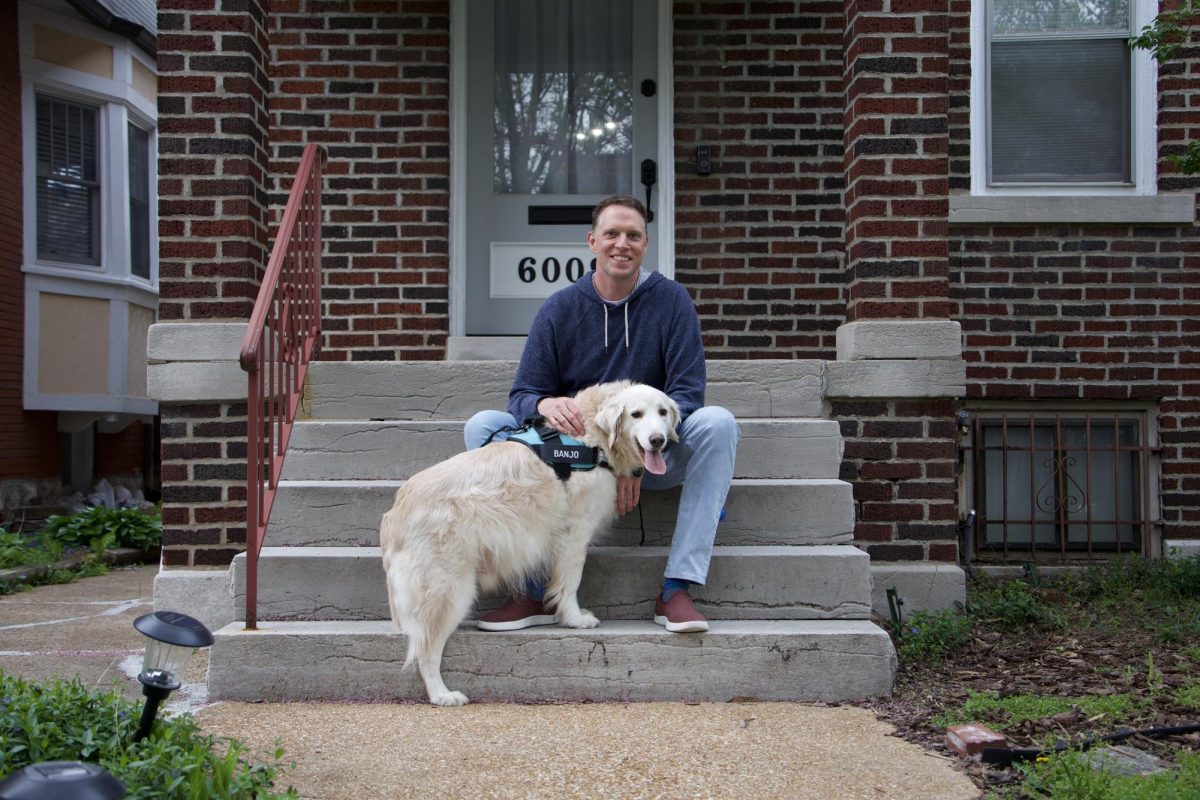
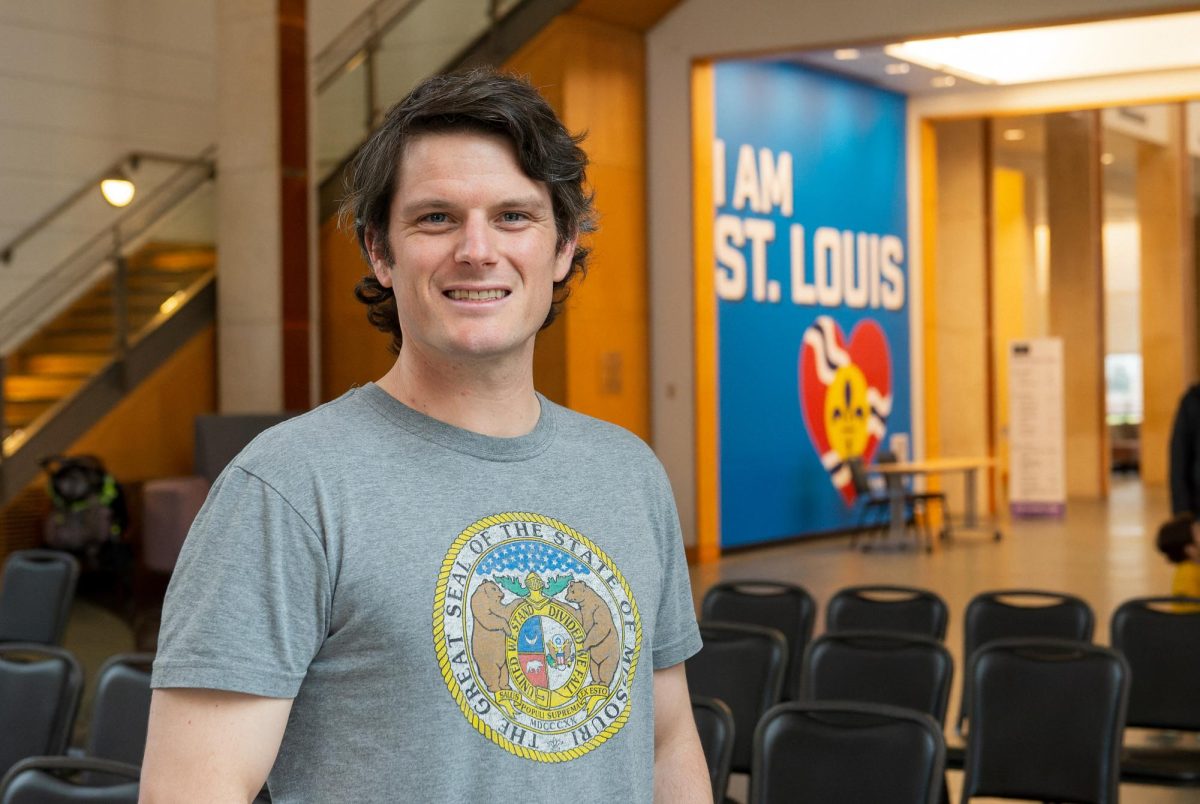
![ABOVE: Duncan Kitchen (10) plucks the strings of his guitar at his home. Duncan’s older brother inspired him to start playing the guitar two years ago. “On any given day [in Alaska], you could walk up the mountain start a campfire [and] play guitar,” Duncan said. (Photos by Vincent Hsiao)](https://laduepublications.com/wp-content/uploads/2025/04/Hsiao_20250325_DuncanKitchen_010-1200x839.jpg)
